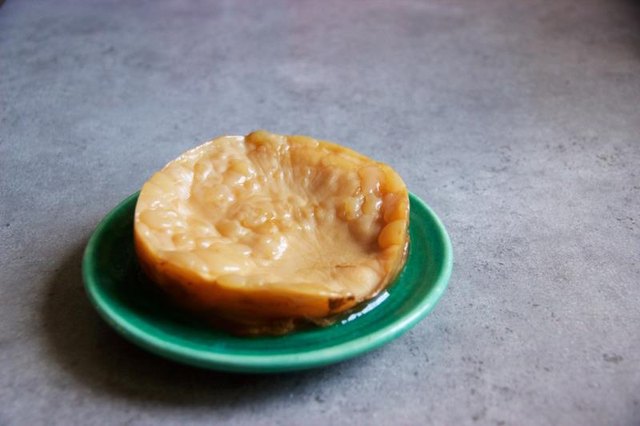
Kombucha and kefir are both fermented beverages, and they are often promoted for their many health benefits. Although the two beverages are similar in many ways, there are also some important differences between the two. If you obtain kombucha or kefir from noncommercial sources, be sure to inspect the production site for cleanliness and sanitation to avoid negative health effects.
About Kombucha
Kombucha tea is produced by allowing a yeast culture, known as the kombucha mushroom, to steep in a mixture of tea and sugar for about one week. During the fermentation process, a new smaller culture, known as a baby mushroom, is produced. The baby mushroom is often passed on to other people who want to make kombucha at home. Although commercially made kombucha tea can be purchased, most people brew it at home, according to the American Cancer Society. Kombucha capsules and extract are also available.
About Kefir
Unlike kombucha, which combines tea and a yeast culture, kefir is produced by combining any kind of milk with a live culture of kefir grains. According to the National Center for Home Food Preservation at the University of Georgia, kefir production originated as a means to preserve milk before refrigeration was available. Kefir grains and milk are usually allowed to ferment for about 24 hours. The mixture is then poured through a sieve to remove the kefir grains, and it can be consumed either plain or flavored with fruit and sweeteners.
Benefits
Kombucha tea contains acids that may help remove toxins from the digestive system and liver, reports registered dietitian Ashley Koff in the Huffington Post. According to the American Cancer Society, kombucha tea is especially popular among the elderly and AIDS patients, since it is said to reduce the effects of aging and improve immunity. Kefir is often promoted for its digestive benefits. A study reported in the May 2003 issue of the "Journal of the American Dietetic Association" demonstrated kefir's ability to improve lactose digestion in adults with lactose intolerance.
- 1 Veg That Kills High BP Learn the 1 Odd Grocery Store Item That Lowers High Blood Pressurebloodpressuresolution.com
- 1 Veg That Kills High BP
Safety
Both kombucha and kefir pose safety concerns. Products that are produced in home environments may not be as well-regulated as commercial products, which may cause undesirable bacterial growth. For optimal health benefits, be sure to obtain kefir and kombucha from reputable sources. Excessive consumption of kombucha tea has been linked with lactic acidosis, a potentially serious condition. The National Center for Home Food Preservation advises anyone with lowered immunity to avoid kefir products, due to the possibility of infection from certain bacteria. To reduce the risk of contamination, choose kefir made with pasteurized milk.
#kefir #kombucha
No comments:
Post a Comment